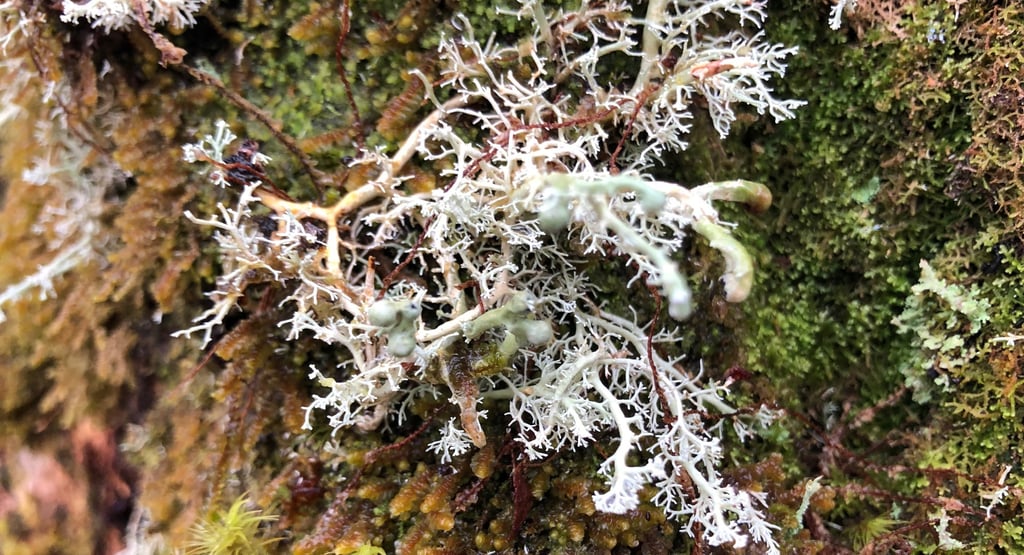Sphaerophorus globosus
Coral lichen
LICHENSATLANTIC RAINFORESTSPECIES SPIELS
Innes Manders
4/7/20251 min read


I like Sphaerophorous globosus. It is a lichen with two good names.
The common name "coral lichen", gives a good sense of the overall character of this distinctive species (it often looks bushier than pictured here).
On the other hand, Sphaerophorous globosus is not only great fun to say, but gives a good sense of the distinctive bulbous fruiting bodies (apothecia) at the ends of the branches of the thallus.
This fruticose (shrubby) species is not easily mistakeable for many other lichens, and can be confidently identified without microscopic examination. It has rounded (terete) branches which become thinner as they branch.
In contrast...
Bunodophoron melanocarpum has flattened branches.
Sphaerophorous fragilis has branches all of the same thickness and often growing at the same height; it tends to be found at higher altitudes (Dobson, 2023, p.429-430).
Sphaerophorous globosus occurs in a range of habitats, and grows on soil, rocks and acid-barked trees.
Although occurring in both western and eastern Scotland, Sphaerophorous globosus is listed on the Upland Rainforest Index (URI). This index is used to assess the species richness of acidic temperate woodland in very high rainfall upland areas (Sanderson et al., 2018).
Sphaerophorous globosus has a remarkably global distribution, in wet, cool climates. It has even been recorded in Antarctica!
Who is recording Antarctic lichens? Apparently enough people that there is a field key to common species (Spielman et al., 2012), which includes some other recognisable species found in Scotland such as Rhizocarpon geographicum.
This post is the first of what I am hoping to make a daily occurrence - whether or not anyone is reading this, it's a good way to do some more research into the species we're recording and to pay more attention to some familiar species. Besides, other people's blogs such as Scottish Lichens and Newtonmore Wildflowers have been a great help to me.
Catkin Ecology
Finding Scotland's missing habitat
CONTACT US
info@catkinecology.co.uk
+44 7918 024809
© 2025. All rights reserved.
